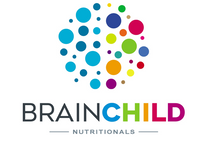How To Get Enough Vitamin D This Winter
Winter is often the time of year when we all start feeling a little run down and sluggish. That's because as the days get shorter, and our levels of vitamin D get lower. But don't fret! There are plenty of ways to keep your vitamin D intake up this winter without having to spend hours outside or buy expensive supplements.
1. What is vitamin D and why we need it
vitamin D is a fat-soluble vitamin that is best known for its role in regulating calcium absorption and helping the body to use calcium and phosphorus to build bones. Vitamin D is also important for cell growth, immune system function, and reducing inflammation.
The main source of vitamin D is the sun, but it's also found in some foods. People who don't get enough sun exposure or eat enough foods that are high in vitamin D may need to take supplements to ensure they're getting enough.

2. Foods high in vitamin D
-Oily Fish (Halibut, Mackerel, Salmon, Herring)
-Egg Yolk
-Fortified Milk
-Beef Liver
-Cheese
-Sunflower Seeds
-Mushrooms
-Tofu
3. How to get enough vitamin D
It's recommended that adults get 600 IUs of vitamin D each day, but recent research suggests that 1,000 IUs per day is the correct amount for most people. If you think you may not be getting enough vitamin D through your diet or sun exposure (if you live in a place where you get little sun during the winter months), speak to your doctor about taking a supplement.
Remember, children need vitamin D as well. But there are different recommended dosages for children than adults. Generally speaking, the recommendation for vitamin D intake for all people between one and 50 years of age is 400 IU/day and 600 IU/day after age 50.
4. How to supplement vitamin D
Getting enough vitamin D can be difficult during cold months, but never fear! BrainChild Nutritionals has you covered. Our micellized liquid vitamin D3 provides an optimal absorption while maintaining a good daily value balance. Whether you are taking supplements or just need extra help through your diet, BrainChild Nutritionals is here to meet all of your needs. This is a convenient, neutral-tasting micellized liquid vitamin D3 that provides an optimal absorption while maintaining a good daily value balance. BrainChild Nutritionals staff and parents feedback has found that moderate amount of vitamin D3 per drop tend to provide adequate nutritional support. We believe that a gentle supplementation approach used in conjunction with other supplements will better support the whole body.
5. How vitamin D supports the immune system
The immune system is a network of cells and organs that work together to protect the body from infection. Vitamin D has been found to be important for overall immune system function.
-It helps regulate the amount of white blood cells your body produces, which are an important part of the immune system.
-Vitamin D is believed to help enhance antimicrobial activity in white blood cells that fight infection.
-The cytokines that trigger an immune response are activated by vitamin D.
-Vitamin D helps regulate the response of cells to infection and promotes healthy inflammatory responses in the body.

6. How does vitamin D work in the body?
Vitamin D is different than other vitamins because it isn't technically a vitamin at all. It is, in fact, a steroid hormone that is naturally produced in the skin when exposed to sunlight. The primary function of vitamin D is to help regulate blood calcium and phosphorus levels, which supports bone health and helps prevent osteoporosis. It also aids in supporting nerve and muscle function, immune system health, cardiovascular health and even mood regulation.
On a cellular level, vitamin D attaches itself to a receptor on the cell's surface, and that interaction triggers a change in the cell that affects how it behaves. This is why vitamin D is known as a "pro-hormone"--it doesn't just act as a vitamin and provide nutrients, it also signals the body to do something about it.
7. Takeaways
-Keep your intake of vitamin D high during winter by incorporating foods that are high in vitamin D into your diet, such as oily fish and egg yolks.
-If you think you may not be getting enough vitamin D through your diet or sun exposure, try supplementing with Micellized Liquid Vitamin D3.






